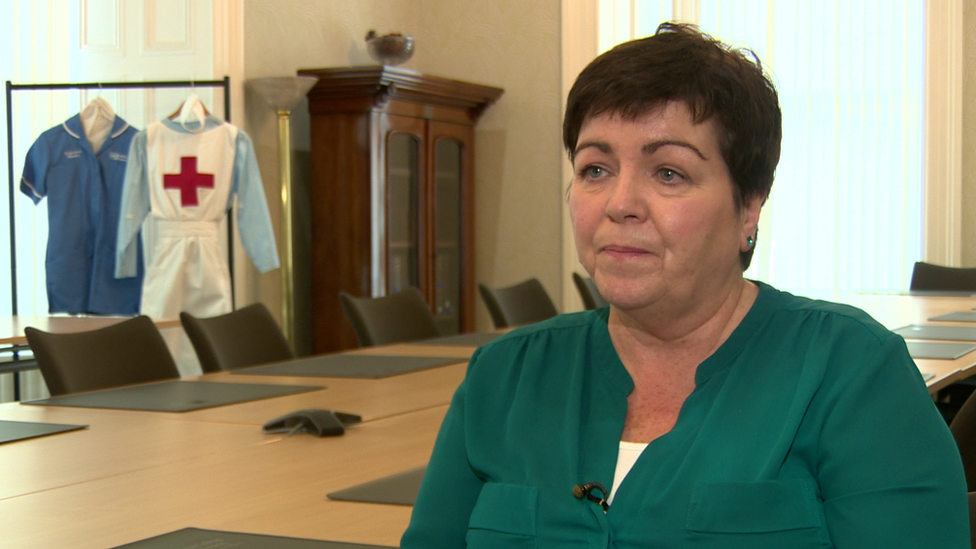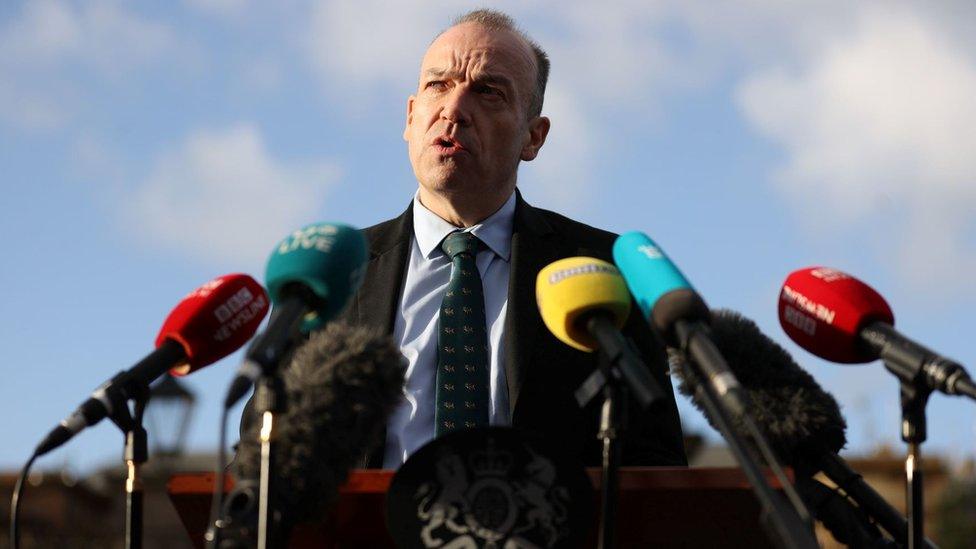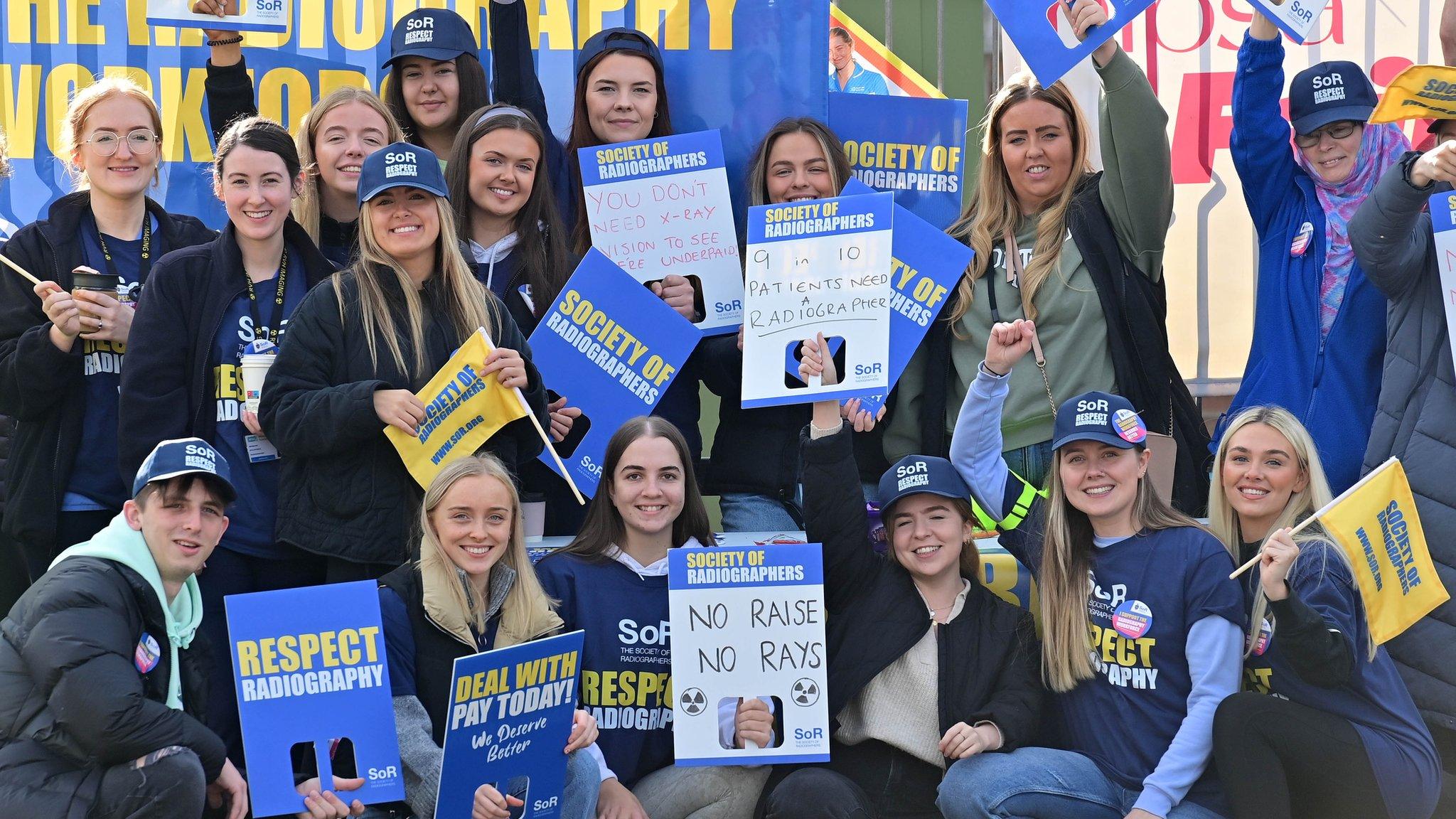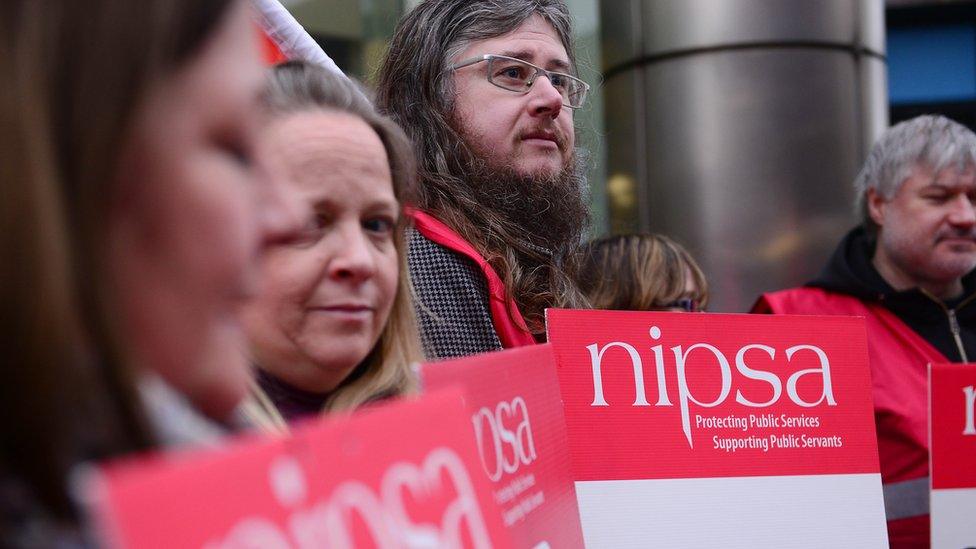Northern Ireland nurses to strike on 18 January
- Published

The Royal College of Nursing (RCN) in Northern Ireland has announced its members are to strike on 18 January.
They join several unions taking part in what is being described as a "generalised day of action".
The RCN says the action is in response to the failure to implement a pay award for 2023/24 in line with colleagues across the UK.
Its NI director said it had been a "difficult decision" but low pay was making it difficult to retain nurses.
The Department of Health has said there was no money for an uplift in a submission to an independent pay review body, and has highlighted that pay in Northern Ireland may fall behind other parts of the UK.
Earlier this week, the union wrote to the secretary of state and NI political parties regarding pay, conditions and the ongoing political stalemate.
However, a Northern Ireland Office (NIO) spokesperson said that a "package is on the table" to deal with public sector pay and will be "available on day one of an incoming Northern Ireland Executive to take up".
In an unprecedented move in December 2019, around 9,000 RCN nurses took part in strike action for the first time in its 103-year history.
Last July, the union warned that its nurses might have no alternative but to take further strike action if there was no pay offer by autumn.

Rita Devlin says it is 'nothing short of immoral' that nurses felt they had to take action again
The RCN's Northern Ireland director Rita Devlin said it had been a "very difficult decision for nurses".
Ms Devlin said low pay was making it difficult to retain staff and that it could no longer be tolerated.
She added that despite not receiving a pay rise, nurses had refrained from strike action during 2023 "to give politicians time and space to work out whatever the issues were to get the assembly back".
Ms Devlin said that nurses were being asked to "do more and more", and that "morale is low, frustration is very high, anger is extremely high".
She warned that nurses will "will go elsewhere where they can get paid more money".
She said: "Patients and staff are suffering every single day due to the lack of political movement which not only affects pay but prevents the transformation of services that has been needed for years. We have no choice but to take further action."
'We are not second-class citizens'
RCN Northern Ireland board chair Briege Quinn has been a nurse for over 40 years and said she has "never seen the situation so dire".
"As nurses we must stand up for our patients and speak on their behalf. Nursing staff are being placed under unimaginable pressure which is resulting in their own ill health and emotional distress," she said.
"No nurse ever wants to take strike action but we cannot stand back any longer and accept the lack of any meaningful help and action to improve pay and the crisis facing health and social care in Northern Ireland. We are not second-class citizens and refuse to be treated as such any longer."
The RCN strike coincides with industrial action involving an increasing number of public sector workers in Northern Ireland.
The trade union Nipsa has described it as the "biggest ever seen".
Other Unions taking part include the Irish Congress of Trade Unions, the Royal College of Midwives and all five of the main teaching unions including headteachers.

Mr Heaton-Harris has come under pressure to tackle the dispute in the absence of a Stormont executive
Some £584m to address public sector pay issues has been offered by the UK government as part of a financial package of more than £3.3bn for the return of a Northern Ireland Executive.
Mr Heaton-Harris has come under pressure to tackle the dispute in the absence of a Stormont executive.
But before Christmas, when political talks broke down at Hillsborough Castle, he argued it was a matter for local ministers, to resolve the on-going crisis including the public sector pay dispute.
A NIO spokesperson said: "The Secretary of State has expressed his disappointment that a new executive was not up and running to take this offer and deliver it for the people of NI before Christmas.
"It is now for the parties to come together, restore the Executive and begin to address the challenges facing the people of Northern Ireland, including public sector pay."
- Published14 July 2023

- Published21 September 2023

- Published19 December 2023
